INFRASTRUCTURE: NDP Sky’s the limit for Carnarvon’s young learners
by Johann Barnard,
2014-11-20 07:01:34.0
ONE of the world’s most ambitious scientific endeavours — the Square Kilometre Array project near Carnarvon in the Karoo — is also being used to build a local base of scientists.
The array will be the world’s largest and most sensitive radio telescope, about 50 times more sensitive and up to 10,000 times faster (in terms of its survey speed) than the best radio telescopes of today. It will be powerful enough to sense radio waves from objects millions or even billions of light years away from earth.
The development of local scientists is being pursued by advancing maths and science skills at Carnarvon High School, one of only a handful of schools in the region. The end goal is to nurture children through their high school careers to the point that they qualify for university entrance — ideally in a field applicable to the SKA.
The SKA project has therefore instituted a bursary programme that identifies promising youngsters who show a knack for these subjects.
School principal Hendrik Robyn says finding and encouraging these students is no easy task.
“The number of learners taking maths and science has increased, but not as much as we would have wanted,” he says. “Many still take maths literacy, which is why a programme like this helps to encourage more learners to take the subjects through to Grade 12.”
The bursary scheme has been operating for the past three years, with five learners participating in the first year. There are currently 25 enrolled in the programme, of which four are Grade 12 students.
This is no easy ride for the bursars as they are assessed annually and only remain in the programme if they attain the necessary qualifying marks.
The school has also benefited from the establishment of an ICT lab that was initially dedicated to promoting maths and science tuition as well as self-learning components. This facility is now open to the entire school body for teaching other subjects.
Robyn says one of the biggest challenges was finding a suitably qualified and enthusiastic teacher for the subjects, which the school has now managed to secure with the help of the SKA team.
There are no guarantees that any of these children will eventually make it into university programmes that allow them to participate in the
SKA project at a scientific level. But the project has a comprehensive university bursary programme that would support deserving students from Carnarvon should they meet the grade.
It is expected that even if some do not graduate to the highest levels of scientific training they would hopefully still be able to pursue some technical qualification that could be applied in other aspects of the project.
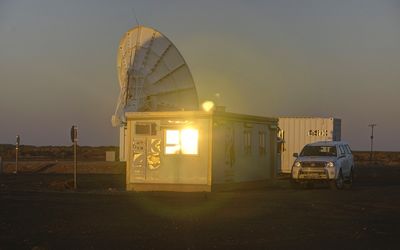
This file image shows the Square Kilometre Array core site in the Karoo. Picture: MAIK WOLLEBEN
ONE of the world’s most ambitious scientific endeavours — the Square Kilometre Array project near Carnarvon in the Karoo — is also being used to build a local base of scientists.
The array will be the world’s largest and most sensitive radio telescope, about 50 times more sensitive and up to 10,000 times faster (in terms of its survey speed) than the best radio telescopes of today. It will be powerful enough to sense radio waves from objects millions or even billions of light years away from earth.
The development of local scientists is being pursued by advancing maths and science skills at Carnarvon High School, one of only a handful of schools in the region. The end goal is to nurture children through their high school careers to the point that they qualify for university entrance — ideally in a field applicable to the SKA.
The SKA project has therefore instituted a bursary programme that identifies promising youngsters who show a knack for these subjects.
School principal Hendrik Robyn says finding and encouraging these students is no easy task.
“The number of learners taking maths and science has increased, but not as much as we would have wanted,” he says. “Many still take maths literacy, which is why a programme like this helps to encourage more learners to take the subjects through to Grade 12.”
The bursary scheme has been operating for the past three years, with five learners participating in the first year. There are currently 25 enrolled in the programme, of which four are Grade 12 students.
This is no easy ride for the bursars as they are assessed annually and only remain in the programme if they attain the necessary qualifying marks.
The school has also benefited from the establishment of an ICT lab that was initially dedicated to promoting maths and science tuition as well as self-learning components. This facility is now open to the entire school body for teaching other subjects.
Robyn says one of the biggest challenges was finding a suitably qualified and enthusiastic teacher for the subjects, which the school has now managed to secure with the help of the SKA team.
There are no guarantees that any of these children will eventually make it into university programmes that allow them to participate in the
SKA project at a scientific level. But the project has a comprehensive university bursary programme that would support deserving students from Carnarvon should they meet the grade.
It is expected that even if some do not graduate to the highest levels of scientific training they would hopefully still be able to pursue some technical qualification that could be applied in other aspects of the project.

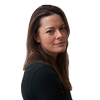

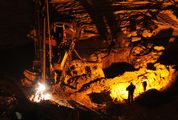
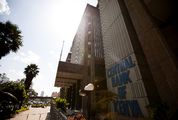
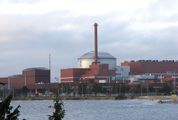


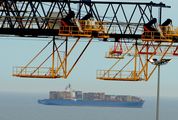
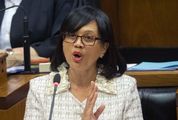
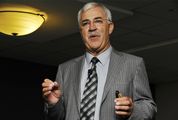









Change: -0.47%
Change: -0.61%
Change: 0.53%
Change: -0.42%
Change: -2.12%
Data supplied by Profile Data
Change: -0.46%
Change: -0.22%
Change: -0.47%
Change: 0.00%
Change: -0.21%
Data supplied by Profile Data
Change: -1.29%
Change: -1.20%
Change: -0.73%
Change: -1.36%
Change: -1.24%
Data supplied by Profile Data
Change: 0.62%
Change: 1.35%
Change: 1.45%
Change: 0.00%
Change: 1.15%
Data supplied by Profile Data